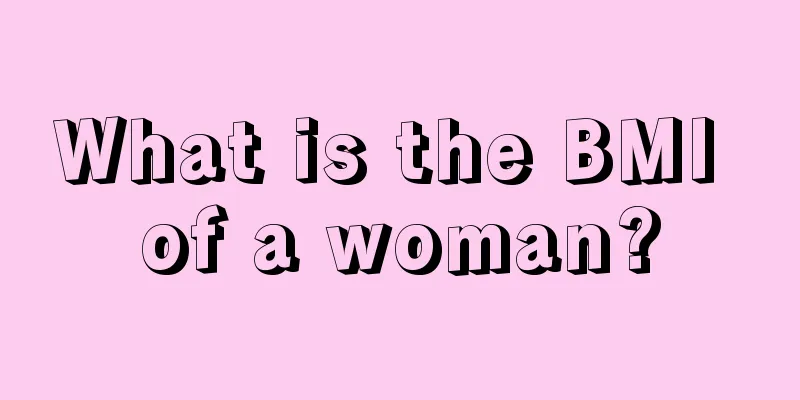A comprehensive analysis of female vaginal bleeding, why not read it now?

|
Vaginal bleeding during menstruation is a very common physiological phenomenon in women, but some women find that they also experience vaginal bleeding during their non-menstrual period. What is going on? Some causes of vaginal bleeding 1. Paroxysmal vaginal bleeding. There is a possibility of primary fallopian tube cancer. 2. Vaginal bleeding with irregular menstrual cycle. It is often functional uterine bleeding, but endometrial cancer should be ruled out first. 3. Bleeding after sexual intercourse. Most of them are cervical erosion, cervical polyps, cervical cancer or submucosal myoma. 4. Vaginal bleeding with leucorrhea. It is often considered to be advanced cervical cancer or endometrial cancer with infection. 5. Long-term vaginal bleeding. Most of them are malignant tumors of reproductive organs, such as cervical cancer, endometrial cancer, etc. 6. Spotting before and after menstruation. A small amount of bloody discharge a few days before or after menstruation is usually due to ovarian dysfunction, but may also be endometriosis. 7. The menstrual volume increases and the menstrual period is prolonged but the cycle is normal. It may be uterine fibroids, adenomyosis, or dysfunctional uterine bleeding. In addition, those who have used an intrauterine device may also have increased menstrual flow. 8. Irregular bleeding after menopause. Women of childbearing age are more likely to be concerned about pregnancy-related diseases, such as miscarriage, ectopic pregnancy, hydatidiform mole, etc.; postmenopausal women are more likely to have malignant tumors. 9. Intermenstrual bleeding. It occurs between two menstrual periods, lasts for 3-4 days, and when the amount of blood is very small, it is mostly ovulation bleeding. How to prevent pathological vaginal bleeding? Adjust your diet 1. It is advisable to eat foods that cool blood and detoxify. Mung bean, rice, cucumber, bitter gourd, purslane, green tea, etc. 2. It is advisable to eat more foods rich in vitamin B: such as wheat, sorghum, water chestnut, honey, tofu, chicken, leek, milk, etc.; it is advisable to eat more fruits and fresh vegetables. 3. Avoid irritating seafood: Hairtail, shrimp, crab and other fishy foods will promote damp heat, and after eating, it will aggravate vulvar itching, which is not conducive to the disappearance of inflammation, so they should be avoided. 4. Avoid spicy food: Eating too much spicy food can easily cause dryness and heat, which can cause heat and toxins to accumulate in the internal organs, resulting in symptoms such as itching and pain in the front and back of the vulva, thus aggravating the symptoms of this disease. 5. Avoid smoking and drinking: This is because the nicotine in tobacco can weaken the binding force between arterial blood and oxygen, and alcohol can promote dampness and heat, so medicine should be avoided. Similarly, food and drink containing alcohol, such as fermented rice wine, medicinal wine, etc. should not be consumed. |
>>: What are the causes of sore throat? Beware of acute laryngitis
Recommend
What to do if there is a cyst in the uterus during pregnancy
Many women may find that there are certain proble...
Does vomiting blood during pregnancy affect the fetus?
The health of pregnant women is directly related ...
How to treat severe breast sagging?
Breasts are a very important part of a woman'...
"Growing up where it shouldn't be" is an endocrine disorder
If hair grows in places where it shouldn't, i...
How big is the fetus at nine weeks of pregnancy
The size of the fetus when a woman is nine weeks ...
COVID-19 "secondary infection" requires vigilance but no need to panic
Recently, a case of "secondary infection&quo...
What to do if women have bloating
Flatulence is a common symptom that affects men, ...
How to get rid of aunt acne
In fact, what most women don’t know is that menst...
What to do if your labia minora is too big
For women, the size of the labia minora is not on...
What is Down syndrome in pregnant women?
For women, getting married and having children ar...
How long after cesarean section can I do pelvic floor muscle repair?
Many mothers who have undergone caesarean section...
Does the 4D color ultrasound look like the one at birth?
The purpose of doing four-dimensional color ultra...
Why is the egg white red? Can you still eat red egg whites?
Egg white is a part of the egg. People often like...
Woman wakes up in the morning with body aches
After a night of sleep, our bodies should be in a...









